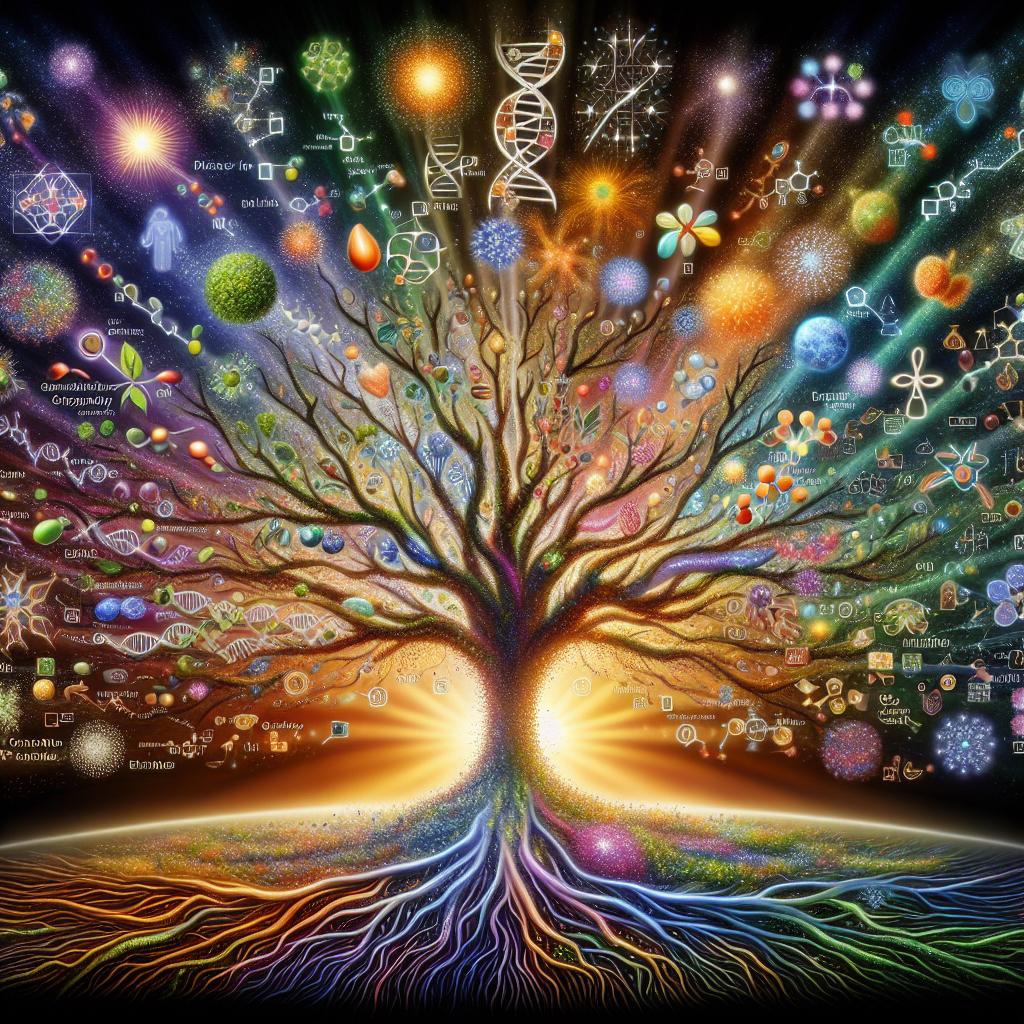
Divine Transformations: Unveiling Mutations and New Information in God's Plan
Published: 11 August 2024
Can mutations create new information?
Mutations are changes in the sequence of DNA, whether they are simple swaps of individual letters or larger-scale changes such as gene duplications or inversions. The question of whether mutations can create new information is often debated among creationists and evolutionists. It is important to clarify what is meant by "new" and "information" in this context.
From a biblical perspective, it is crucial to understand that the genome is not static but can change over time. God was not limited to creating fixed genomes or species. Just as He created diverse species, He also designed genomes with the ability to change and adapt. These changes can occur through various mechanisms such as homologous recombination and jumping genes.
However, it is essential to distinguish between mutations and "designed variation." Many genetic differences among humans are not due to mutations but rather designed diversity. Adam and Eve carried a significant amount of genetic diversity, which was present on the Ark and dispersed among the post-Babel population. Deletions and insertions in the human genome are examples of rapid genomic decay through mutation.
The definition of "information" in the context of biology is challenging to pin down precisely. Shannon Information, a statistical measure used in communication theory, does not adequately capture the complexity of biological information. A more applicable definition would be "an encoded, symbolically represented message conveying expected action and intended purpose." Biological information exists at various hierarchical levels, including statistics, syntax, semantics, pragmatics, and apobetics.
Therefore, when considering whether mutations can create new genetic information, it depends on what is meant by "information." Mutations can lead to new variations within existing genes or reveal pre-existing information through recombination or decompression. However, it is important to note that these changes do not account for the rise of all life on Earth.
The Complexity of the Genome
Understanding the complexity of the genome is crucial in assessing the ability of mutations to create new information. The genome operates in at least four dimensions, including the linear sequence of DNA, interactions between different parts of the genome, the three-dimensional spatial structure within the nucleus, and changes over time. The genome is packed with meta-information, which is information about the information itself.
The concept of meta-information challenges the idea that DNA is solely responsible for storing all biological information. The architecture of the cell, sub-cellular compartments, and molecular machines all contribute to the overall biological information. Taking an organism-centric view recognizes that a significant part of biological information resides outside DNA.
Moreover, Darwin's theories of evolution can be seen as separate ideas—his special and general theories. Creationists acknowledge species change over time but question the mechanisms proposed for the development of new functions and traits. It is important to recognize that mutations alone cannot account for the radical new functionality required for evolution. Genomic complexity, circular and ultra-complex pathways, and chicken-and-egg problems present significant challenges to the idea that mutations can create new information.
Examples Used by Evolutionists
Evolutionists often cite examples such as adaptive immunity, gene duplication, and antibiotic resistance as evidence of mutations creating new information. However, these examples do not meet the requirements for true gain-of-function mutations necessary for large-scale evolutionary processes.
Adaptive immunity involves intelligent design rather than random mutation. Gene duplication, while it can lead to new functions in some cases, is unlikely to produce radically new functionality required for evolution. Additionally, examples like sickle cell anemia and antibiotic resistance involve degradation or loss of pre-existing information rather than the creation of new information.
It is essential to critically evaluate these examples and recognize their limitations in supporting evolutionary theory. None of these examples demonstrate the kind of information-gaining mutations necessary for evolutionary progress.
The Meta-Information Challenge
An often overlooked aspect in discussions about mutations and information is the presence of meta-information in the genome. Meta-information refers to the information that guides how the genetic information is maintained, copied, interpreted, and passed on to the next generation. It is a higher level of biological complexity that cannot be explained by naturalistic mechanisms.
The existence of meta-information raises profound questions about its origin. If mutations are considered as the primary source of new information, they fall short in explaining the presence of meta-information. The complex hierarchy of biological functions, molecular machines, and regulatory systems requires a top-down perspective and intelligent design.
In conclusion, mutations can create new variations within existing genes or reveal pre-existing information through recombination or decompression. However, these changes do not account for the rise of all life on Earth, as they fall short in providing the radical new functionality required for evolution. The complexity of the genome, the presence of meta-information, and the lack of true gain-of-function mutations challenge the idea that mutations alone can create new information. Ultimately, the origin and existence of meta-information point to an intelligent designer who surpasses our understanding.
